big fingers
through thin slats reaching -
one last leaf
Sitting with legs crossed at our heavy table, with back straight I pour the tea. The soup touches every part of the filter, making wet that which was dry. Collected in the jug, yellow liquid soon turns dark. My cup, shared with clay frog, makes my breath sweet and cool.
it is enough
just to follow the breathing
and drink your tea
The white butterfly beyond my door knows the sweetness of this tea. He has his lavender and honeysuckle: both mixed, reminding me of home.
bright green grasshopper
once you have finished with it
I'll use my toothbrush
Turning to find the vines that cast shadows on my ceiling, I knock over my jug. Moving quickly, my hands, to catch it before I know it has fallen.
turning, falling
prettier than ever
before it breaks
no matter how hard
I blow I cannot open
the door from here
unfolding my legs
getting ready to move
the door swings open
a man
I've nevet met makes tea
I know so well

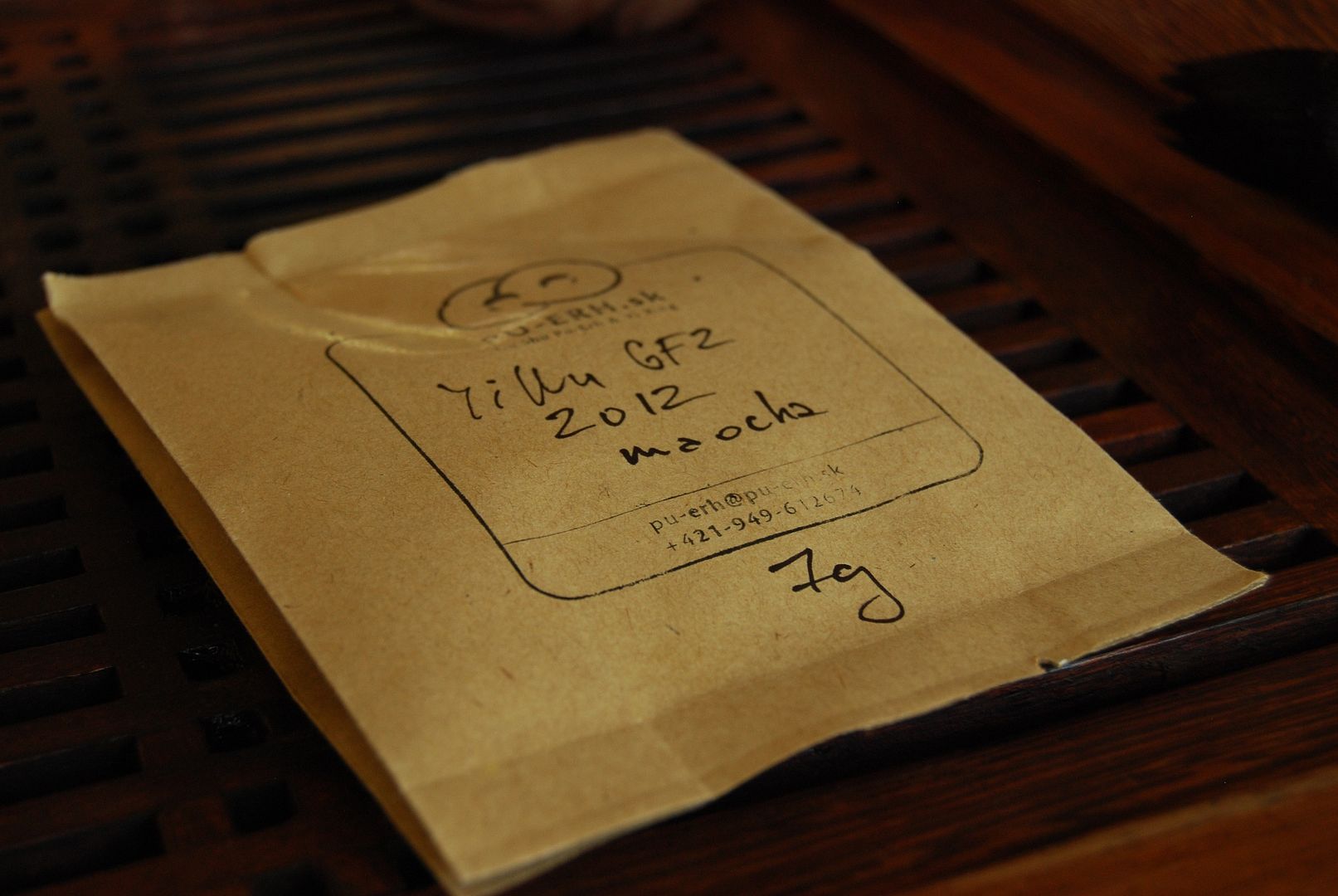
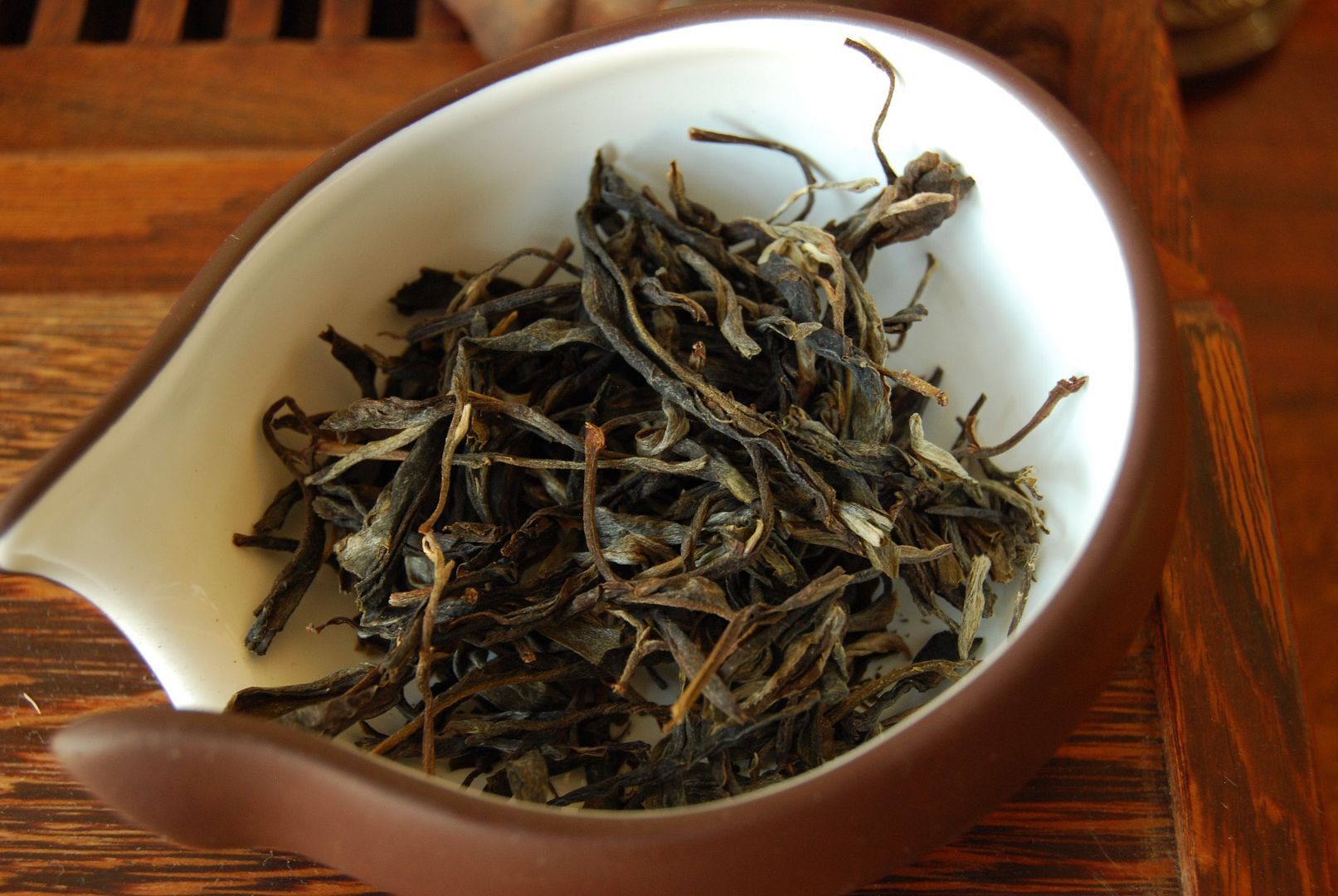
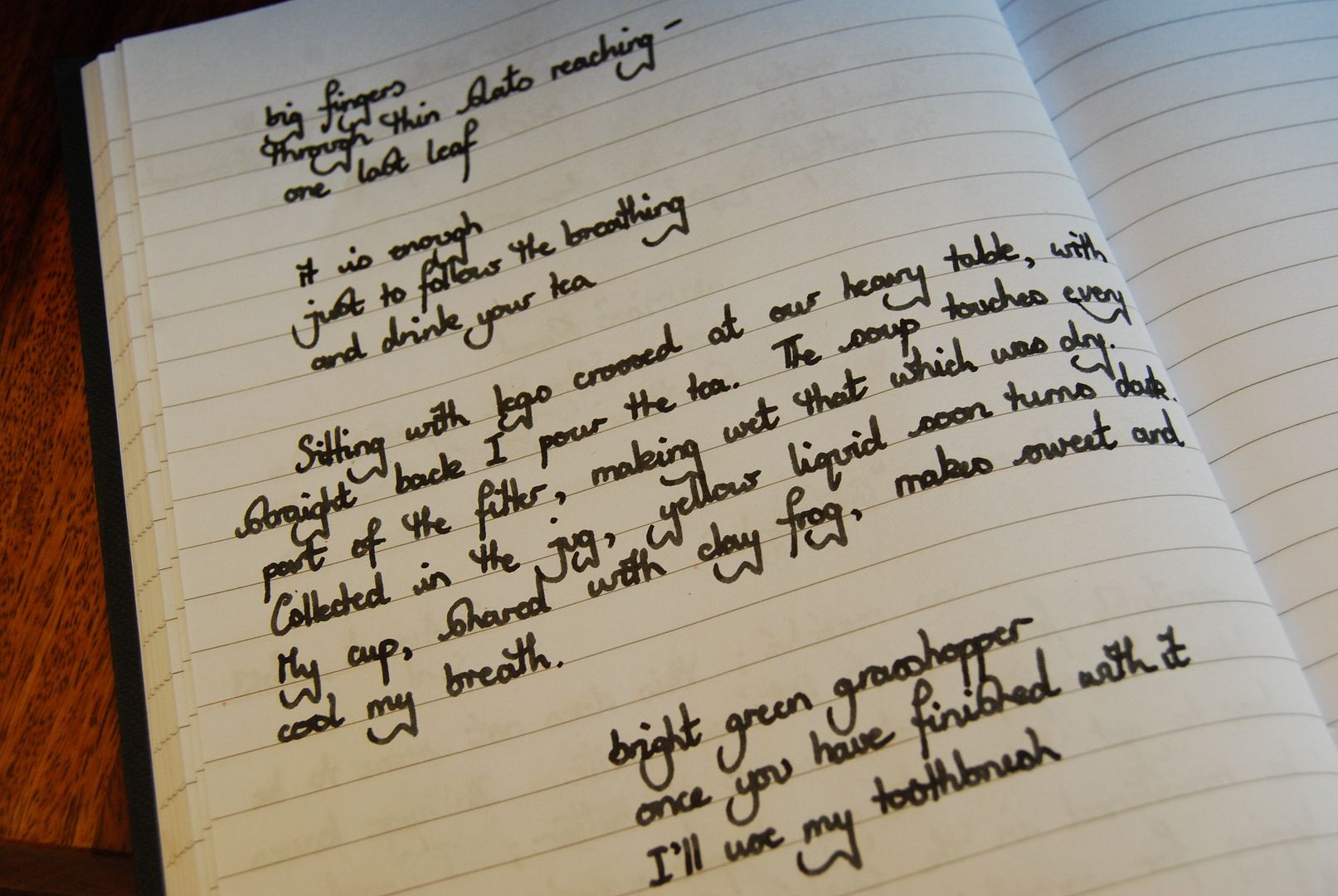
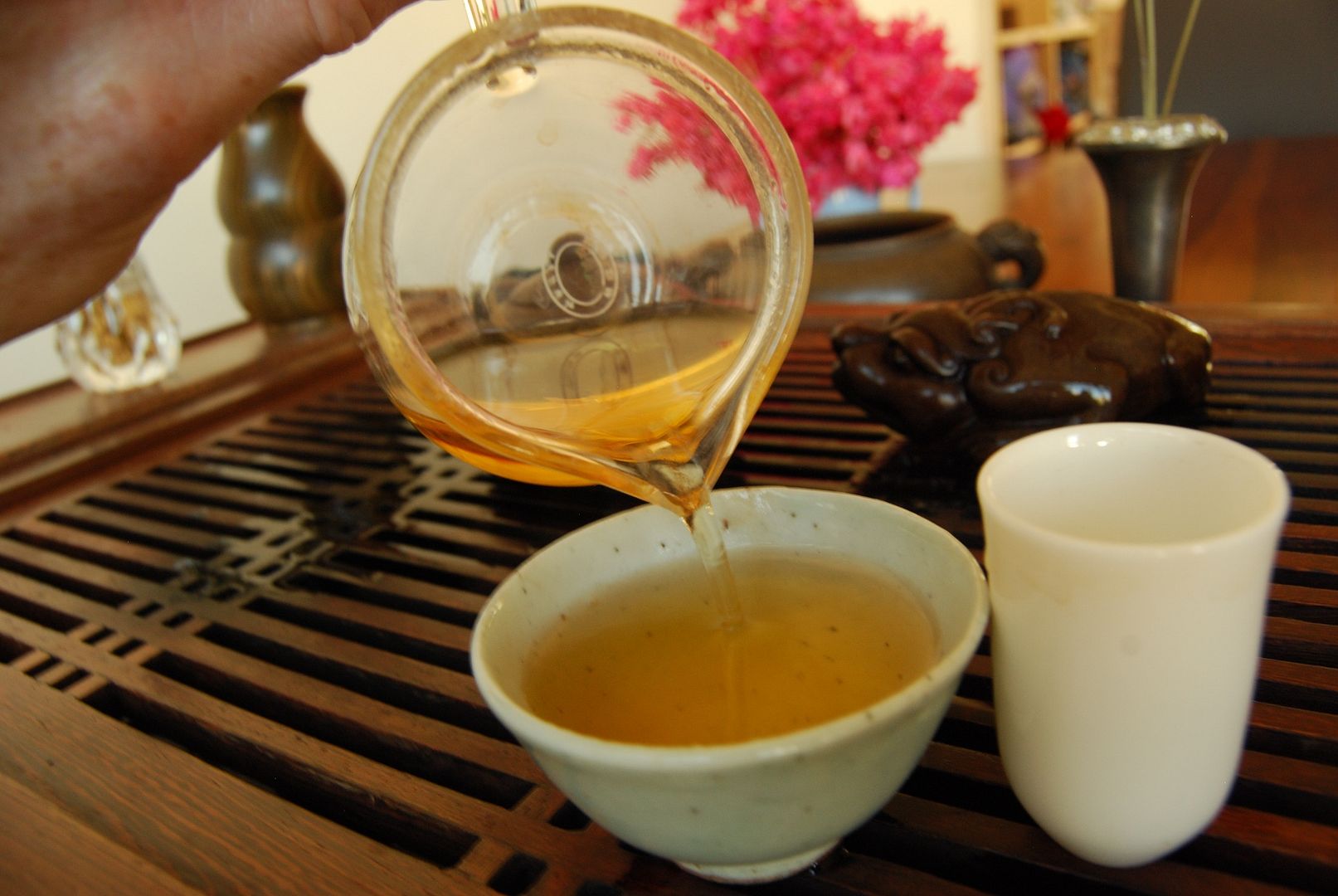
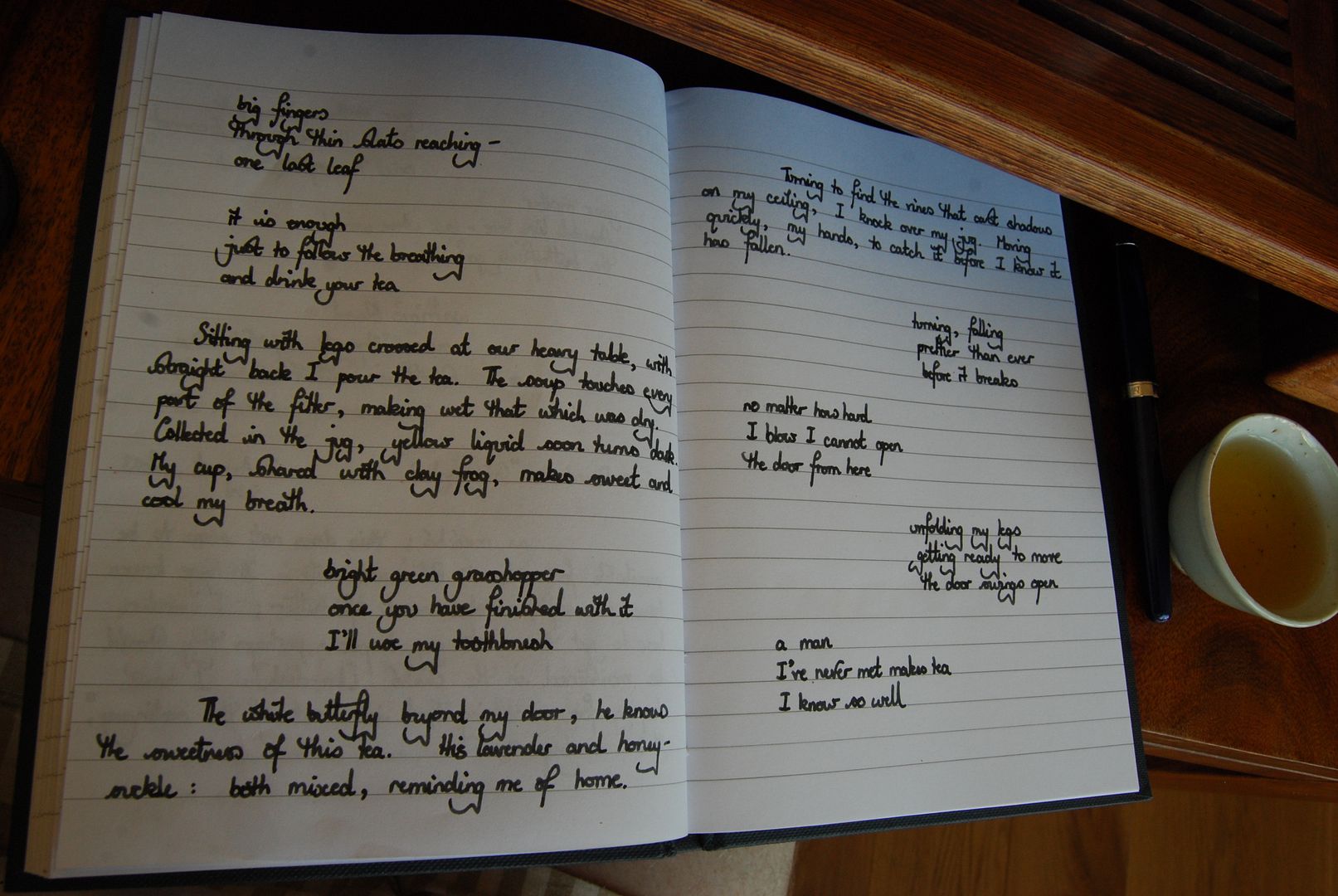
I really enjoyed it. And haiku too. :)
ReplyDeleteThank you, Vovic :)
ReplyDeleteThis one may need some explanation.
ReplyDelete"Haibun" is one of favourite genres of writing, and is one that I dabble in often when I travel, my inspiration being the epic haibun of Basho, as he travelled the interior of Japan.
Haibun is a mixture of prose in the Zen style, and haiku. The linkage between prose and haiku is supposed to be like the linkage between images and haiku in the "haiga" form - they are not supposed to explain one another explicitly, but they intended to be developments of the same theme. Perhaps one might be a humourous take on the other, or insightful, or both. An evolution occurs.
As within a haiku itself, the link between the prose and the haiku has an "ah hah!" moment, as the link between the image and the haiku in the haiga.
So, my haibun for this Guafengzhai.
My fingers are far too big to catch every leaf that falls between the slats of my teatable, but there is something in me that finds it disrespectful to let tea go without a struggle to use it. This haiku is linked to the image of Peter's latest sample. Suddenly the leaves and the slats are clear, and we can see why, in this particular case, I might be especially concerned with savouring every last leaf.
This links with our expectation for the start of a session: the preparation of the self. Sometimes (by no means always), this can be an opportunity for clearing the mind, if that's your wont. The prose is a Zen prose, describing the instant without metaphor. It is, like a haiku, a "snapshot" and has sensibilities that are similar, while allowing a different format. Basho's prose is remarkable for its Zen.
The haiku, it is just enough to follow the breathing, builds on the quite famous words of Suzuki-roshi. "Just drink your tea", which is linked in my "Musings" page.
Then, the tea. I must be drinking it by the time the next prose opens, because I am watching butterflies: my tea-table opens out onto a view of the garden, and the butterflies love the honeysuckle that grows near the door. It is not only butterflies, however - there are grasshoppers!
The haiku describes my toothbrush, apparently abducted by one such grasshopper. He was a kindly soul, and was happy to relinquish my toothbrush so that I could, eventually, use it.
(Cont...)
Some prose - my "Zen prose" description of my decidedly clumsy, non-Zen ability to knock things over with my long limbs.
ReplyDeleteThe haiku, turning falling prettier than ever, reflects the beauty of something only realised when on the moment of its destruction. We never know what we have until it's gone - or about to be. Thankfully, as the prose suggests, it didn't break (this time), allowing us a little humour.
The image that follows also suggests that the jug survived to pour another cup - and rather a pretty one at that.
The pair of haiku that follow, a problem and a solution, are a subconscious play on a Western haiku by a famous "beat" poet, Jack Kerouac. The beat poets (as in, "worn out") were good with Zen, and were writing at a time when it was just coming to the West in any real way. They probably helped it along. His famous poem is:
missing a kick
at the icebox door
it closed anyway
...which I adore very much. I wrote my pair of haiku, and then realised that I had paraphrased Kerouac. I let it stand - such "tributes" are everywhere in haiku and Zen literature.
Finally, the book lays open. The spirit of Zen is not to work on something over and over: it must be done in one movement, with the whole being, the whole mind, the whole heart, all at once, no practice. Zen painting is like this, and a good haibun can be the same. My book is all at once, no crossing out, no iteration - just a flat-out splattering of ink on the page.
I close with a haiku of thanks to Peter for his excellent tea, and perhaps a meditation on the closeness between strangers that can arise through the familiarity of their works - in Peter's case, his excellent Guafengzhai. Maybe, depending on your attitude to my writing, the occasional haiku might qualify, too.
You never know.